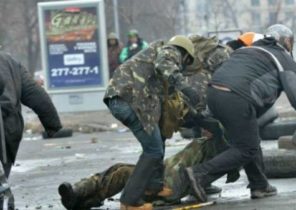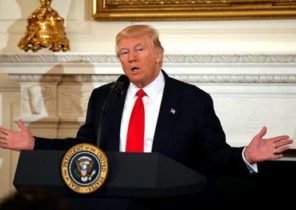
15 December, Prime Minister Shinzo Abe met with President Putin in his home town of Nagato. It is expected that this meeting will be a turning point for postwar relations between Russia and Japan. On the challenges facing Russia and Japan, and about point of view on these problems we talked with the historian and Professor at the University of Tokyo Masayuki Yamauchi.
In Iran, there are the following folk tale.
“You can admire the bear. But it is impossible to embrace him. Because he’ll crush you.”
For Iranians the bear is, of course, a metaphor for Russia. In other words, the problem is how to deal with such a dangerous bear.
“We need to be with the bear in a good relationship. But not unnecessarily to go into its territory. Because he’s big and strong, it will inevitably crush you.” For the Iranians, who in the XIX century during the two major wars lost vast territories in Central Asia and the Caucasus, this is a serious topic.
Now we are on the path of improvement of Russian-Japanese relations. In December, President Putin visited the Japan and held talks with Prime Minister Shinzo Abe in his hometown of Nagato, which is in Yamaguchi Prefecture. In light of the development of Russian-Japanese relations the most important task is to resolve questions on the way to friendly relations between the two countries.
However, Japan, which is extremely important for the Japan-us Alliance, it is necessary to keep in mind the Iranian knowledge and parable, in which Russia is compared to a bear.
Russian-Japanese relations from the point of view of energy and natural resources
Currently, around the situation, which is called a new cold war or even war, which laganee the cold war. In the course of this war does not necessarily apply military force. As for the civil war in Syria and the military conflict in Ukraine, Russia gives full support to its allies, helping them keep fighting.
Nevertheless, Moscow is not limited to this. It is increasing its hegemony around the world in the form of an energy war.
For example, during the conflict, which erupted in 2009, Russia stopped supplying gas to Ukraine. The fact that the Ukrainian side did not pay the money for gas and tried to use it for free. Of course, President Putin and the entire Russian elite was furious.
The consequences of this conflict led to the fact that Russia began to look for routes of gas supplies to Western Europe and the middle East to bypass Ukraine. As you know, in the result, the idea of building South stream and “Turkish stream.”
Change the Eurasian balance of political forces in the region, from Ukraine to Syria and from Europe to Asia. We must realize that Russian-Japanese relations are in this process.
Prime Minister Shinzo Abe has already proposed to President Putin’s plan of economic cooperation of the eight points during the negotiations, which were held in Sochi in 2016. This bold plan of economic cooperation includes the construction of a gas pipeline to Japan in order to provide a stable base for energy supply.
The supply of natural gas to Japan, which is the most reliable and reputable buyer, are of great importance for Russia and its economy. In addition, Russia will likely also planning to increase the speed of traffic on the TRANS-Siberian railway.







